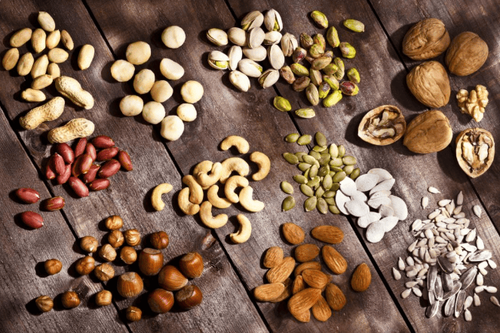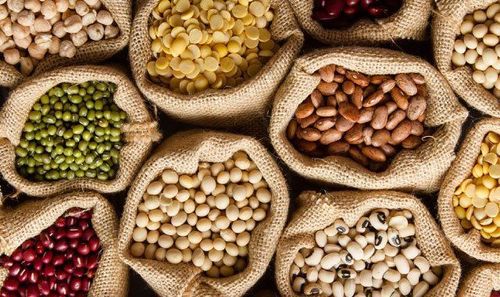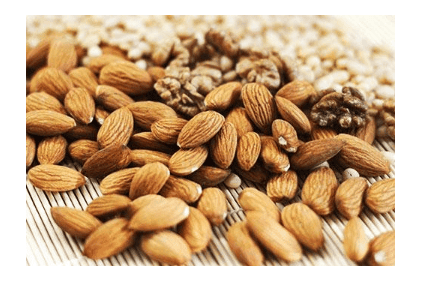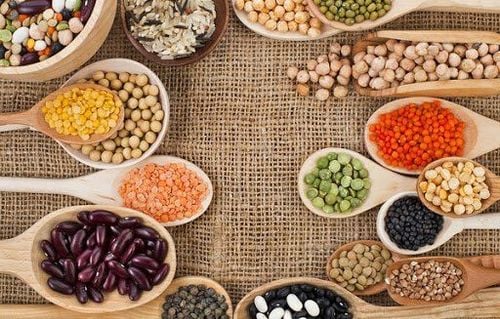This is an automatically translated article.
Diabetes can be better controlled with the addition of nuts in the patient's diet. Certain nuts like almonds, Brazil nuts, cashews, chestnuts, hazelnuts, macadamias, pecans, pine nuts, pistachios, and walnuts are full of nutrients that are beneficial for people with diabetes.
1. The reason people with diabetes should eat nuts
The results of a recent study, published in the American Heart Association's journal Circulatory Research, show that, for a person with diabetes, especially type 2 diabetes, the Adding some nuts to their daily diet could be just as important to their long-term health as getting regular exercise and keeping their blood sugar in check. In it, the researchers concluded that when regularly eating nuts every week, patients with type 2 diabetes had a 17% lower risk of heart-related diseases. In addition, people with type 2 diabetes who ate nuts regularly had a 34% lower risk of dying from cardiovascular disease, a 20% lower risk of coronary heart disease, and a 31% lower risk of premature death.The study authors explained, eating nuts less than five times per week still provided benefits, but less than those who ate nuts almost daily. Research has also shown that nuts in particular offer many benefits to one's heart. Common nutrient-packed nuts include almonds, Brazil nuts, cashews, walnuts, macadamia nuts, pecans, pistachios, pine nuts, chestnuts, and sunflower seeds. It is important to remember that peanuts are not a nut but a legume. Peanuts can be part of a healthy diet, but scientists have yet to prove the health benefits of peanuts can be the same as that of other nuts.

Những người mắc đái tháo đường type 2 ăn các loại hạt thường xuyên có nguy cơ tử vong do bệnh tim mạch thấp hơn 34%
2. Why are nuts good for the heart health of diabetics?
The secret behind nuts' ability to improve heart health is the positive effects they have on the blood pressure of each person, especially those with diabetes. In addition, nuts have an impact on the body's ability to metabolize fat, blood sugar levels, the body's overall level of inflammation, and the health of blood vessels.
Reducing the risk of these health problems can also help reduce your risk of metabolic syndrome. Metabolic syndrome is characterized by five risk factors that increase the likelihood of developing heart disease, type 2 diabetes, and stroke. Five risk factors include:
Hypertension (greater than 130/85 mm Hg); High blood sugar (insulin resistance); The amount of excess fat around the waist is large; High levels of triglycerides; Low levels of good cholesterol (HDL cholesterol). For patients who are already living with type 2 diabetes, the risk of developing heart disease or stroke is very high. Taking steps to reduce your risk of metabolic syndrome means reducing your risk of these comorbidities. Metabolic syndrome was diagnosed based on five composite assessments of waist circumference, fasting blood triglycerides, cholesterol levels, blood pressure, and fasting blood sugar.
Besides advice on regular exercise, maintaining a healthy diet, adding nuts to the diet is also a method that needs attention. Elisabeth Arme Kinder, a freelance writer specializing in diabetes, said: "Tree nuts have been consistently shown in research to reduce inflammatory markers for heart disease and diabetes. It also increases the amount of high-density lipoprotein that protects your heart and affects other health problems.” Alle Kinder, also a member of the Diabetes Council, explains that high-density lipoprotein is a combination of cholesterol, triglycerides, and protein. Lipoproteins play an important role in the absorption and transport of dietary fats in the small intestine. They also transport beneficial cholesterol and triglycerides from the liver to other parts of the body. Despite the health concerns surrounding cholesterol and triglyceride levels, the body still needs a certain amount of both to produce certain hormones and bile in the liver.
Cholesterol is also an important material for basic human tissues such as skin and cartilage. And as we know, nuts are one of the foods most likely to provide the most healthy fats. According to the Mayo Clinic, dietary fats are mostly monounsaturated fats, which are known for their ability to help lower cholesterol and protect heart function.

Các loại hạt là một trong những thực phẩm có khả năng cung cấp nhiều chất béo lành mạnh nhất
3. The best nuts for diabetics
3.1. Almonds
Almonds can bring a lot of benefits to people with diabetes. A study from 2011 found that incorporating almonds into the diets of participants with type II diabetes for 12 weeks positively affected blood sugar levels and reduced the risk of related diseases. related to the heart. A more recent study, starting in 2017, looked at the effects of daily almond consumption for 24 weeks in people with type II diabetes. The authors show that incorporating almonds into the diet helps control blood sugar levels and lowers the risk of heart disease.
Almonds reduce low-density lipoprotein (LDL) cholesterol levels in the body, one of the possible causes of clogged arteries. They increase the amount of high-density lipoprotein cholesterol (HDL cholesterol) and help remove harmful cholesterol (LDL cholesterol) from the arteries. This is part of the reason why almonds reduce the risk of heart disease.
3.2. Walnuts
Walnuts may help reduce the risk of developing diabetes. Walnuts are high in calories. However, a study in BMJ Open Diabetes Research & Care found that they did not have a major impact on weight or body composition. The researchers assigned 112 participants at risk for diabetes to follow a low-calorie or walnut-rich diet for 6 months. They found that a diet rich in walnuts could improve the ratio of good cholesterol (HDL cholesterol) to bad cholesterol (LDL cholesterol) without negatively affecting body composition or weight. Researchers found an association between walnut consumption and diabetes risk in 34,121 people. They found that people who regularly ate walnuts or walnut products were half as likely to develop diabetes as those who didn't eat nuts during this period.

Hạnh nhân có thể mang lại rất nhiều lợi ích cho những người mắc đái tháo đường
3.3. Cashews
Cashew nuts can help improve the ratio of good cholesterol (HDL cholesterol) to bad cholesterol (LDL cholesterol) and reduce the risk of cardiovascular related diseases. In a 2018 study, researchers fed 300 participants with type II diabetes a diet rich in cashews or a regular diabetes diet. Those who followed the cashew-rich diet had lower blood pressure and higher levels of good cholesterol (HDL cholesterol) after 12 weeks. Cashew nuts also had no negative effects on the study subjects' blood sugar levels or weight.
3.4. Pistachios
Pistachios or pistachios are relatively high in energy, but they contain a good amount of fiber and healthy fats. As part of a 2015 study, researchers fed participants with type II diabetes for four weeks a diet rich in pistachios or a regular diet. They found that the ratio between good cholesterol (HDL cholesterol) and bad cholesterol (LDL cholesterol) was significantly better in the group that ate the pistachios, compared with the control group. People who regularly ate pistachios also had lower triglyceride levels, which indicates better heart health.
3.5. Peanuts
Peanuts are rich in protein and fiber. They are one of the richest sources of protein and fiber. In addition, peanuts can also help with weight loss and reduce the risk of heart-related diseases. A study from 2013 looked at the effects of peanuts on the diets of obese women at risk of developing type 2 diabetes. Researchers found that adding peanuts to the diet The cup helped control blood sugar levels as well as reduce cravings in the participants. This can both help with weight loss and have a significant impact on diabetes risk.
As a versatile food, nuts can be easily incorporated into a healthy diet. They can be a good source of protein and healthy fats for people with diabetes. However, it is also important to note, nuts are also a great source of energy, so patients also need to pay attention to the amount to be able to use it appropriately. Nuts can make a simple snack. Most are safe to eat raw, and they're available at many grocery stores. People with diabetes should avoid foods high in salt.
Please dial HOTLINE for more information or register for an appointment HERE. Download MyVinmec app to make appointments faster and to manage your bookings easily.
References: medicalnewstoday.com, diabetes.co.uk, medicalnewstoday.com, healthline.com












